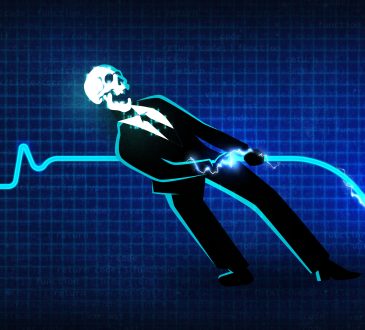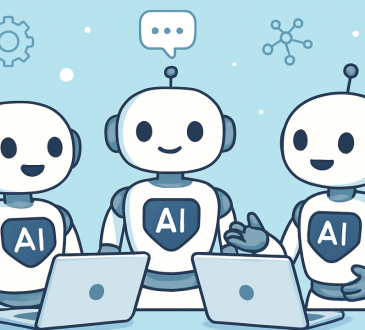
Artificial intelligence (AI) is no longer a futuristic concept in healthcare—it’s quickly becoming a key part of modern medicine. From diagnosing diseases to managing treatments, AI is reshaping the way healthcare providers operate. Over the past year, AI technology has progressed at lightning speed, improving patient care, streamlining workflows, and advancing medical research. From AI-driven diagnostics to predictive analytics and personalized medicine, the healthcare industry is entering a transformative era that promises better outcomes for patients everywhere.
Revolutionizing Diagnostics with AI
AI is making a huge impact in diagnostics. Traditionally, accurate diagnosis relies heavily on human expertise, which—though highly skilled—can sometimes be prone to errors or delays. AI algorithms, especially deep learning models, are now showing incredible ability to analyze complex medical data such as:
- Medical imaging (X-rays, MRIs, CT scans)
- Pathology slides
- Genetic information
Radiology breakthroughs
AI’s role in radiology is particularly impressive. Advanced AI systems can detect abnormalities in scans with accuracy comparable to top radiologists. They are increasingly used to identify early-stage cancers—lung, breast, and colorectal—spotting subtle patterns often missed by the human eye. Beyond accuracy, these systems speed up diagnoses, allowing earlier interventions that can save lives.
Pathology advancements
AI is also transforming pathology. Digital pathology platforms analyze tissue samples at a microscopic level, helping pathologists detect anomalies more accurately. The collaboration between AI and human expertise is reducing diagnostic errors and streamlining lab workflows worldwide.
Predictive Analytics and Preventive Care
AI is not just helping doctors diagnose diseases—it’s also predicting them. By analyzing huge amounts of patient data, including electronic health records, lifestyle habits, and genetic profiles, AI can identify people at higher risk for conditions like:
- Diabetes
- Heart disease
- Neurodegenerative disorders
Predictive analytics allows healthcare providers to intervene early. For example, AI-driven assessments can suggest:
- Lifestyle changes
- Early screenings
- Preventive treatments
This proactive approach not only improves patient outcomes but also reduces healthcare costs by preventing severe conditions that require expensive treatments.
Personalized Medicine and AI-Driven Therapeutics
Tailored treatment
Personalized medicine customizes care based on a patient’s genetic makeup. AI helps by analyzing genetic sequences to identify mutations linked to specific diseases, allowing clinicians to design targeted therapies. In oncology, AI platforms recommend treatment plans based on tumor genetics, increasing effectiveness while reducing side effects.
Faster drug discovery
AI is also revolutionizing drug development. Traditional drug research can take years and cost billions. AI models can analyze molecular structures, predict biological responses, and identify promising drug candidates faster and more efficiently. Some AI-designed molecules are already entering clinical trials, potentially marking a new era of precision medicine.
AI and Remote Healthcare Delivery
Telemedicine and remote healthcare are on the rise, and AI is enhancing these services. AI-powered virtual assistants can:
- Provide preliminary diagnoses
- Answer patient questions
- Monitor chronic conditions via wearable devices
These tools expand healthcare access, especially in underserved areas, while reducing the workload on medical professionals.
Wearables and monitoring
AI-enabled wearable devices track vital signs in real time, detecting issues such as irregular heartbeats, sleep disturbances, or sudden changes in blood sugar. Combined with predictive analytics, these devices allow timely interventions, improving the quality of life for patients with chronic illnesses.
Challenges and Ethical Considerations
Despite AI’s advancements, challenges remain:
- Data privacy: AI needs sensitive patient data to function. Ensuring compliance with healthcare regulations and cybersecurity standards is essential.
- Accountability: When AI makes recommendations, it can be unclear who is responsible—the clinician, AI developer, or institution. Transparent, explainable AI models help mitigate this issue.
- Bias in algorithms: AI trained on unrepresentative data can produce biased results, worsening healthcare disparities. Research is ongoing to develop fair AI systems for all patients.
Global Adoption and Industry Impact
AI adoption in healthcare is growing worldwide. North America and Europe have been early adopters, integrating AI into hospitals, research programs, and clinical workflows. Emerging markets are quickly catching up, using AI to address challenges like limited access to specialists and fragmented healthcare systems.
Collaboration driving innovation
Partnerships between technology companies and healthcare providers are accelerating innovation. Both tech giants and startups are developing AI solutions tailored to real-world clinical needs, translating AI research into tools that directly improve patient care.
Looking Ahead
The future of AI in healthcare is full of possibilities:
- Fully autonomous diagnostic systems
- AI-assisted robotic surgeries
- Predictive public health models for outbreak prevention
- Integration with genomics, IoT devices, and robotics
The key is balance. AI should enhance healthcare efficiency and accuracy without replacing the empathy and judgment of human professionals. Done right, AI can dramatically improve patient outcomes while minimizing risks and inequities.
Conclusion
The latest AI updates highlight a transformative moment in healthcare. From diagnostics and personalized treatments to predictive care and remote monitoring, AI is reshaping every aspect of medicine. While challenges like data privacy and algorithm bias remain, the collaboration between AI and healthcare professionals is set to deliver faster, smarter, and more personalized care.
As AI continues to advance, the future of medicine looks brighter than ever—more precise, proactive, and accessible to patients worldwide.




